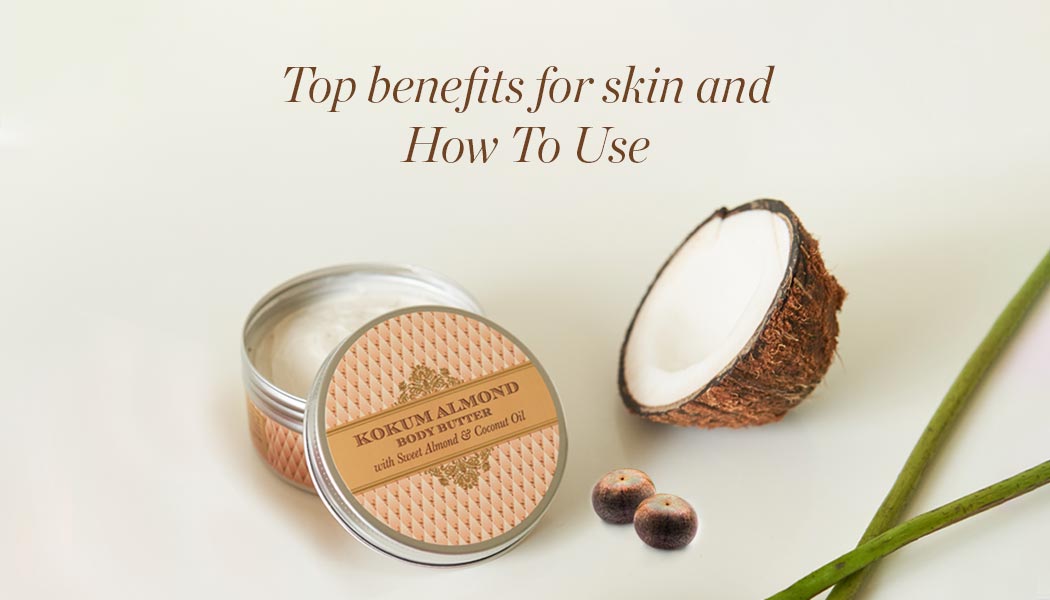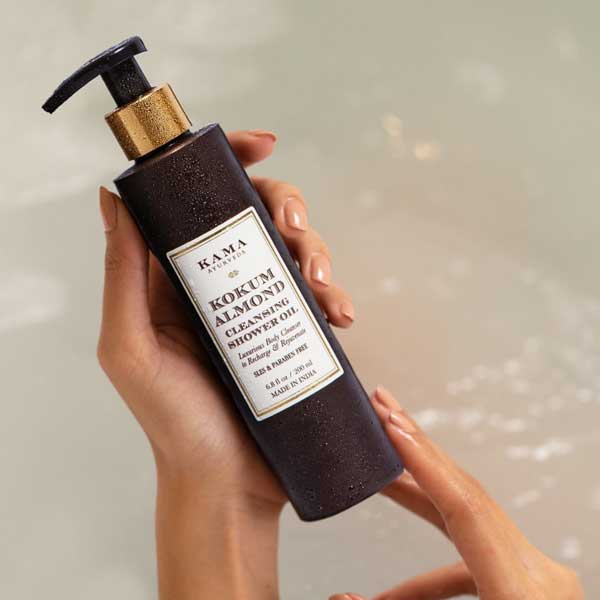In the heart of India's luscious Western Ghats, nature has bestowed a remarkable gift upon us: the Kokum fruit. Deriving from the Garcinia indica tree, this fruit has more to offer than its tangy flavor.
It brings along a myriad of skincare benefits, making it a coveted ingredient in many traditional remedies. Grounded in ancient wisdom of Ayurveda, Kokum has been the secret behind the radiant and youthful skin of many.
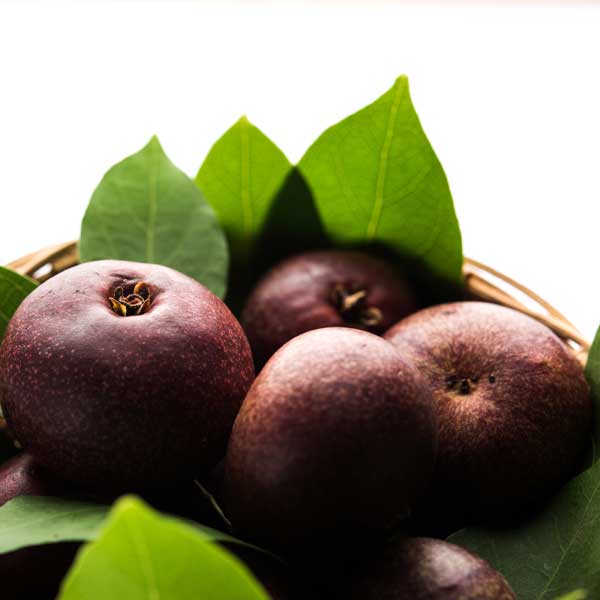
Top Benefits Of Kokum For Skin
Peek into the biochemistry of Kokum, and you'll find a powerhouse of nutrients. Rich in essential vitamins, fatty acids, and antioxidants, this fruit acts as a wellspring for skin nourishment. Here’s how Kokum collectively ensures your skin receives holistic care.
Provides Deep Moisturization:
Kokum butter's wealth of skin-fortifying constituents, such as vitamin E and polyunsaturated fats like omega-3 and omega-6 essential fatty acids, ensure profound hydration for dry skin.
It’s an excellent emollient that creates a protective layer on the skin, effectively locking in moisture. This ensures the skin remains hydrated without any greasy residue, which can be a common concern with some oils and butters.
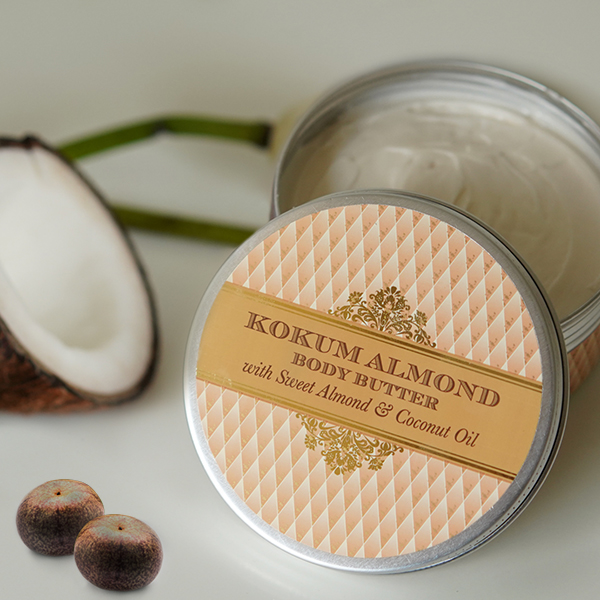
Has Anti-inflammatory and Soothing Properties:
Due to its anti-inflammatory nature, Kokum soothes skin that's inflamed from sunburns, rashes, or environmental irritants. It's also adept at reducing under-eye puffiness, making it a valuable component for eye care treatments.
Traditionally, Kokum has been a sought-after remedy for skin conditions like eczema, psoriasis, and dermatitis due to its calming effects.
Has Antioxidant Properties:
Kokum is rich in Vitamin E, a potent antioxidant that can help protect the skin from harmful UV radiation and mitigate the adverse effects of sun damage.
The antioxidant components in Kokum combat free radicals that contribute to premature aging, helping to reduce the appearance of fine lines, wrinkles, and age spots.
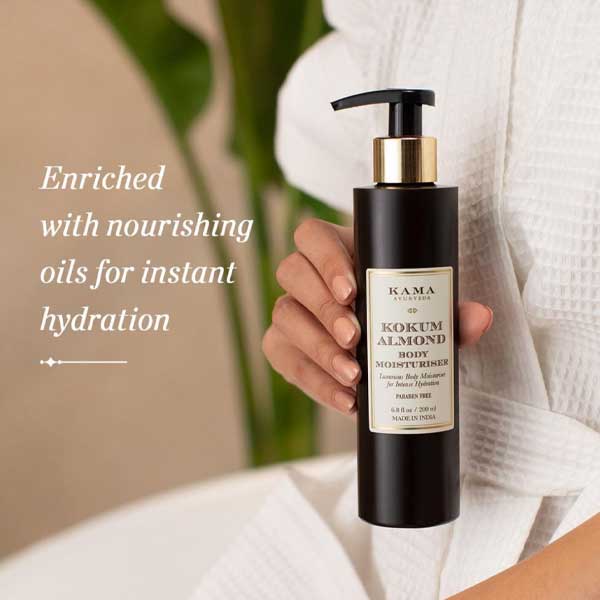
Has Natural Healing Abilities:
Kokum promotes the turnover of skin cells, which can help in fading scars, hyperpigmentation, and uneven skin tones. Moreover, it has properties that assist in faster wound healing, making it beneficial for minor cuts, scrapes, and burns.
Is Non-pore-clogging:
Kokum strikes a balance in oil production, ensuring moisturization without tipping the scale. It helps in regulating sebum production, ensuring that the skin remains moisturized without becoming excessively oily.
Its non-comedogenic nature ensures that it doesn’t clog pores, thus reducing the risk of acne breakouts
Enhances Skin Elasticity:
Over time, skin can lose its elasticity due to aging, environmental factors, and lack of moisture. Kokum aids in restoring this elasticity, making the skin look plumper and more youthful. It is also known to tone and firm the skin, contributing to a more refined and sculpted appearance.
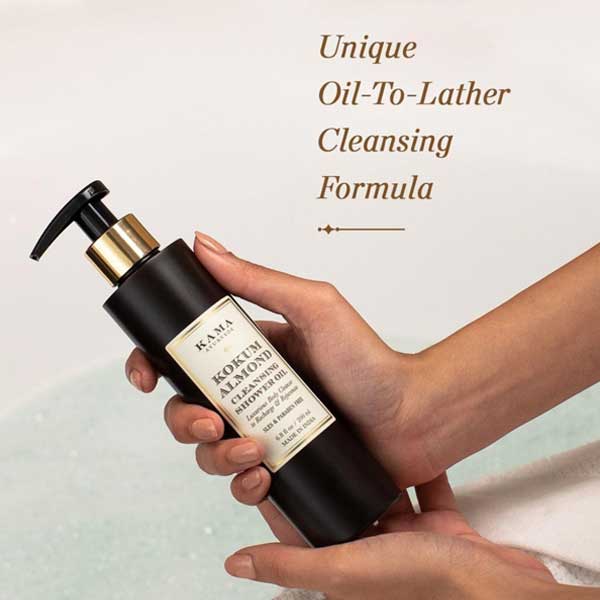
Protection Against Environmental Stressors:
Kokum forms a protective barrier on the skin's surface, shielding it from pollutants, dirt, and other environmental stressors. While not a replacement for sunscreen, the antioxidants in Kokum provide an added layer of protection against harmful UV rays.
Ideal for Sensitive Skin:
Its gentle nature makes kokum butter an excellent alternative for sensitive skin. Its anti-inflammatory properties ensure lightening, brightening, and soothing effects even for the most sensitive skin types.
Controls Acne and Blemishes:
Its antibacterial properties cleanse pores of impurities, germs, and dust. Being non-comedogenic with a light, non-greasy texture, Kokum butter regulates oil secretions, effectively addressing breakouts, pimples, blackheads, and whiteheads.
Read - Your Complete 8-Step Winter Skin Care Guide
What Is Kokum Butter?
Kokum Butter is a rich and creamy natural plant-based butter extracted from the seeds of the Kokum tree (Garcinia indica).
Nested within each raw or ripe Kokum fruit are approximately 5 to 10 sizable black seeds. Once separated from the fruit's pulp, these seeds are meticulously cleaned to eliminate any lingering dirt and debris. The cleaned seeds are then subjected to high pressure, squeezing out the valuable oil.
This oil undergoes further processing to yield what we commonly recognize as kokum butter, which is sometimes referred to as Kokum oil.
Compositionally akin to the well-known Shea butter, Kokum butter boasts a high content of saturated fats, particularly stearic acid and oleic acid. This unique blend of fatty acids makes kokum butter an esteemed moisturizing, healing, and protective ingredient in skincare and cosmetic formulations.
Characteristics Of Kokum Butter
Kokum Butter is a prized ingredient in the skincare and cosmetic industry due to its rich therapeutic properties. Here are the primary characteristics of Kokum Butter:
Texture and Consistency:
Kokum Butter is firm at room temperature but melts on contact with the skin, which allows for easy application. It has a dense consistency, similar to cocoa butter, but tends to be a bit more brittle when cold. It melts at 90-104 degrees Fahrenheit.
Color:
Typically, it ranges from off-white to pale grayish or yellowish in color.
Fragrance-free:
Being a natural substance, Kokum butter doesn't contain any fragrances that could be harmful or irritating, making it suitable for those sensitive to smells.
Non-comedogenic:
One of the standout features of Kokum Butter is that it's non-comedogenic, meaning it won't clog pores. This makes it suitable for individuals with acne-prone or oily skin.
Emollient Properties:
It is an excellent moisturizer and helps to deeply hydrate the skin without leaving a greasy residue.
Stability:
Kokum Butter is known for its oxidative stability, which means it has a longer shelf life compared to some other natural butters. Its stability also makes it a popular choice as an ingredient in cosmetic formulations.
Rich in Fatty Acids:
It contains a high concentration of essential fatty acids, such as stearic acid, oleic acid, and palmitic acid, which are beneficial for skin health.
Antioxidant Properties:
Kokum Butter is rich in antioxidants, particularly Vitamin E, which helps combat free radicals and prevent skin damage.
Anti-inflammatory:
It has natural anti-inflammatory properties that can soothe irritated skin and reduce redness.
Regenerative Abilities:
Kokum Butter aids in the regeneration of skin cells, promoting healing and reducing the appearance of scars and wrinkles.
Cooling Effect:
Traditionally, it's believed to have a cooling effect on the skin and has been used to soothe burns and rashes.
Versatility:
While it's beneficial on its own, Kokum Butter also blends well with other oils and butters, making it a favored ingredient in a variety of cosmetic and skincare formulations, from lotions and creams to lip balms and soaps.
High Stearic Acid Content:
With 40-45% stearic acid, Kokum butter can act as a thickening agent for lotions, conditioners, balms, and soaps, offering a firmer texture.
Easily Absorbed:
Kokum butter stands out from its counterparts like coconut, shea, and cocoa butters due to its lightweight nature. It gets absorbed into the skin swiftly without leaving a greasy residue.
Read - 14 Best Moisturizers For Dry Skin – Safe and Organic
How To Use Kokum and Kokum Butter In Skincare?
Using Kokum and Kokum butter in skincare can provide numerous benefits due to their moisturizing and therapeutic properties. Here's how you incorporate these wonderful ingredients into your skincare routine:
1. Kokum Butter as a Moisturizer:
Face and Body: After cleansing, apply a small amount of Kokum butter to your face or body. Since it's non-comedogenic, it won't clog pores, making it suitable for all skin types, including acne-prone skin.
Lips: Given its nourishing properties, kokum butter can be directly applied to the lips as a hydrating balm. It will treat dry, chapped lips, giving them a smooth and soft texture.

Note - Kama Ayurveda’s Kokum Almond Body Butter is only suited for body moisturisation.
What experts say -
"Kokum butter, rich in essential fatty acids like omega-3 and omega-6, possesses a unique lipid profile. Unlike many other botanical extracts, it offers superior hydration without clogging the pores, making it a prime ingredient for both cosmetic formulation and dermatological applications."- Dr Gopan G
2. Kokum Butter in DIY Skincare Recipes:
Face Masks: Mix kokum butter with ingredients like honey, aloe vera gel, or yogurt for a hydrating face mask. The combination can help soothe and moisturize dry or irritated skin.
Body Scrubs: Blend kokum butter with sugar or salt, along with essential oils, to create a moisturizing body scrub. This will not only exfoliate but also leave your skin feeling supple and refreshed.
Whipped Body Butter: Combine kokum butter with other oils like jojoba or coconut oil. Whip the mixture until it has a light, fluffy texture. This whipped body butter will be a treat for parched skin.

What experts say -
"The standout property of Kokum butter is its high stearic acid content. This not only imparts a smooth consistency to cosmetic formulations but also enhances the skin's lipid barrier, providing protection against environmental stressors and trans-epidermal water loss."- Dr. Vinny Narayanan
3. Skincare Products with Kokum:
Many skincare brands have recognized the benefits of kokum and have incorporated kokum butter into their products. Look for:
Creams and Lotions: Kokum butter is often found in moisturizing creams and lotions due to its excellent hydrating properties.
Lip Balms: Given its benefits for the lips, many lip care products have Kokum butter as a primary ingredient.
Soaps or shower oils/gels: The stability and moisturizing properties of Kokum butter make it a popular choice in soap or shower gel formulations.
FAQs about Kokum Butter
How to use Kokum butter for skin?
Kokum butter can be applied directly to the skin as a moisturizer or can be incorporated into creams, lotions, or balms. Simply scoop a small amount, warm between your fingers, and then massage it onto your skin.
What does Kokum butter do for skin?
Kokum butter offers a plethora of benefits for the skin. It deeply moisturizes, provides anti-inflammatory and soothing properties, enhances skin elasticity, and offers protection against environmental stressors. It also aids in skin cell regeneration, reducing visible signs of aging and is non-comedogenic, which means it doesn’t clog pores.
Is Kokum butter good for all skin types?
Yes, Kokum butter is suitable for all skin types, including sensitive skin. Its non-comedogenic and anti-inflammatory properties make it especially beneficial for acne-prone and sensitive skin.
Does Kokum butter have UV protection?
While Kokum butter possesses antioxidants that can offer some protection against the harmful effects of UV rays, it should not be solely relied upon as sun protection. It's essential to use a dedicated sunscreen for complete UV protection.
How to use Kokum butter for hair?
Kokum butter can be applied to the hair as a conditioner or mask. Melt a small amount and mix it with your favorite hair oils. Apply it to your hair from roots to tips, leave it on for about 30 minutes, then shampoo and rinse.
How is Kokum butter made?
Kokum butter is extracted from the seeds of the kokum fruit. The seeds are cleaned, pressed under high pressure, and then processed to obtain the butter. The result is a creamy consistency known as kokum butter or kokum oil.
Is Kokum butter better than Shea butter?
Both kokum and shea butter offer fantastic benefits for the skin. While kokum butter is lightweight and gets easily absorbed without leaving a greasy residue, shea butter is known for its deep moisturizing capabilities. The preference between the two often comes down to individual skin needs and desired texture.
Is Kokum butter safe for the face?
Yes, kokum butter is safe for facial use. Its non-comedogenic nature ensures it doesn't clog pores, making it suitable even for acne-prone skin.
How to care for kokum butter?
To ensure the longevity and quality of your Kokum butter, store it in a cool, dry place away from direct sunlight. Ideally, it should be kept in an airtight container. If you notice it starting to melt, transfer it to a cooler location or consider refrigerating it.
Like most natural butters, Kokum butter can go rancid if not stored properly, so always check its smell and texture before use. If it smells off or has developed mold, it's best to discard it.
